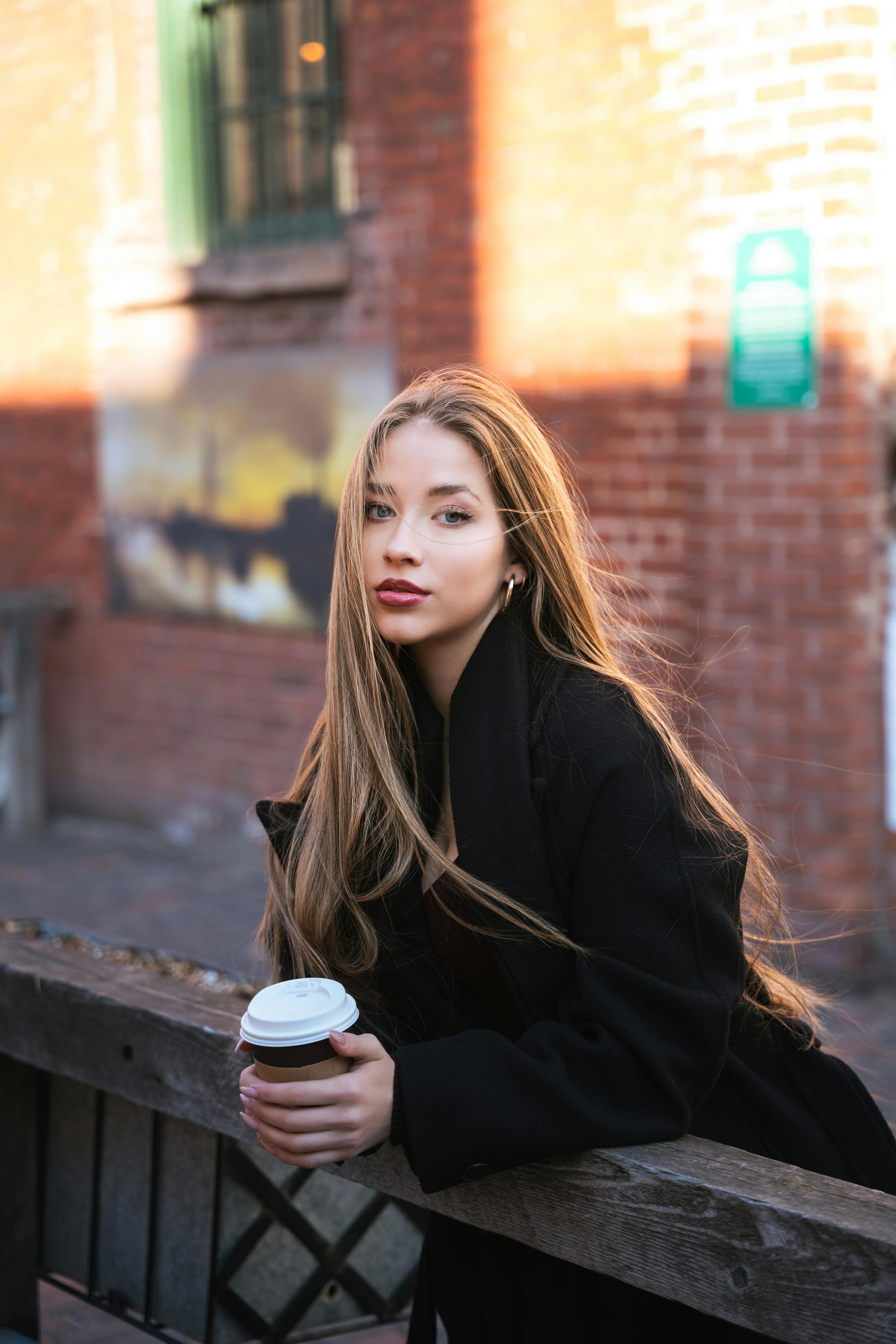At HopaCoffee.com, we understand that coffee is more than just a drink; it’s a way of life. That’s why we’re here to explore the fascinating realm of coffee and its impact on anxiety. Join us as we uncover the relationship between coffee and our mental well-being, delving into how this beloved beverage can either alleviate or exacerbate anxiety symptoms. Whether you’re a coffee connoisseur or simply intrigued by the subject, we’ve got you covered. So grab your favorite mug, sit back, and let’s embark on a journey to unravel the mysteries of coffee and its profound influence on our anxiety levels.

Caffeine and Anxiety
Caffeine’s Effect on the Brain
Caffeine is a natural stimulant that affects the central nervous system, including the brain. When consumed, it blocks the adenosine receptors, which helps promote alertness and wakefulness. In addition, it increases the production of dopamine, a neurotransmitter associated with pleasure and reward. These effects can lead to increased energy, focus, and mood enhancement.
Caffeine and Increased Anxiety
While caffeine can provide a temporary boost in mood and energy, it can also contribute to increased anxiety levels in some individuals. Caffeine stimulates the release of stress hormones such as cortisol and adrenaline, which can trigger heightened feelings of anxiety. Additionally, caffeine can increase heart rate and blood pressure, leading to physical symptoms of anxiety.
Individual Sensitivity to Caffeine
It’s important to note that individuals vary in their sensitivity to caffeine. Some people may consume large amounts of coffee without experiencing any anxiety symptoms, while others may be more susceptible to its effects. Factors such as genetics, overall health, and tolerance levels play a role in determining individual sensitivity. It’s essential to pay attention to your body’s responses and find the right balance for you.
Benefits of Coffee for Anxiety
Antioxidants and Mood
Coffee contains powerful antioxidants, such as chlorogenic acid and polyphenols, that have been linked to improved mood and reduced risk of depression. These compounds help protect the brain against oxidative stress and inflammation, which are known contributors to anxiety and mood disorders.
Social Benefits
Coffee has long been enjoyed as a social beverage, often associated with gathering and connecting with others. Engaging in social activities and fostering social connections have been shown to have a positive impact on mental health, including anxiety. So, enjoying a cup of coffee with friends or loved ones can provide a sense of support and belonging, reducing feelings of anxiety.
Routine and Relaxation
For many people, the ritual of preparing and savoring a cup of coffee can be a source of comfort and relaxation. Establishing a daily coffee routine can create a sense of structure and familiarity, which can help alleviate anxiety. The act of taking a break, sitting down, and enjoying a moment of peace with a warm cup of coffee can be a calming and soothing experience.

Negative Effects of Coffee on Anxiety
Sleep Disruption
One of the most well-known side effects of caffeine is its impact on sleep. Consuming coffee, especially in the evening or close to bedtime, can interfere with falling asleep and disrupt the quality of sleep. Lack of proper sleep can worsen anxiety symptoms and contribute to feelings of restlessness and irritability.
Digestive Issues
Coffee is known to stimulate the production of stomach acid, which can lead to digestive issues such as heartburn, acid reflux, and indigestion. These physical discomforts can exacerbate anxiety, as the mind and body are interconnected. Limiting coffee intake or switching to decaffeinated options can help alleviate gastrointestinal problems.
Jitteriness and Nervousness
High caffeine consumption can cause jitteriness, nervousness, and restlessness. These symptoms can mimic the physical sensations of anxiety, intensifying anxious feelings. For individuals prone to anxiety, it’s important to monitor caffeine intake and find a balance that avoids these negative side effects.
Caffeine Withdrawal and Anxiety
Symptoms of Caffeine Withdrawal
When someone regularly consumes caffeine and then abruptly stops or significantly reduces their intake, they may experience caffeine withdrawal symptoms. These symptoms can include headaches, fatigue, irritability, difficulty concentrating, and increased anxiety. It’s important to be aware of these potential withdrawal symptoms if considering reducing or eliminating caffeine from your routine.
Managing Caffeine Withdrawal Symptoms
To manage caffeine withdrawal symptoms, it’s recommended to gradually reduce caffeine intake instead of quitting abruptly. This allows the body to adjust slowly and minimizes the severity of withdrawal symptoms. Staying hydrated, getting enough sleep, and practicing relaxation techniques can also help alleviate any anxiety-related symptoms during this adjustment period.
Gradual Reduction of Caffeine Intake
To gradually reduce caffeine intake, it can be helpful to replace one cup of coffee a day with a decaffeinated alternative or herbal tea. Over time, continue to replace additional cups until reaching a desired level of caffeine reduction. By doing this gradually, the body can adjust more easily, and the risk of triggering caffeine withdrawal symptoms, including anxiety, is minimized.

Decaffeinated Coffee and Anxiety
Caffeine Content in Decaffeinated Coffee
While decaffeinated coffee is often seen as a viable alternative to regular coffee, it’s important to note that it still contains trace amounts of caffeine. Decaffeinated coffee typically contains about 2 to 5 milligrams of caffeine per 8-ounce cup, compared to the 95 milligrams typically found in a regular cup of coffee. While this amount is significantly lower, it may still affect individuals who are highly sensitive to caffeine.
Impacts of Decaffeinated Coffee on Anxiety
For individuals who are sensitive to caffeine or prone to anxiety, consuming decaffeinated coffee can help reduce the risk of anxiety-related symptoms. Decaffeinated coffee can provide the familiar taste and aroma of coffee without the potential negative side effects. However, it’s essential to assess individual responses and adjust consumption accordingly.
Other Benefits of Decaffeinated Coffee
Decaffeinated coffee still contains many beneficial compounds found in regular coffee, such as antioxidants and polyphenols. These compounds have been linked to various health benefits, including reduced inflammation and improved brain health. So, even though the caffeine content is reduced, decaffeinated coffee can still offer positive effects on overall well-being.
Alternative Anxiety-Friendly Drinks to Coffee
Herbal Teas
Herbal teas, such as chamomile, lavender, and lemon balm, have calming properties that can help reduce anxiety. These teas are caffeine-free and often recommended for their soothing effects on the mind and body. Incorporating herbal teas into your daily routine can provide a warm and comforting beverage option without the stimulating effects of caffeine.
Green Tea
Green tea contains lower levels of caffeine compared to coffee but still offers a gentle energy boost. It also contains the amino acid L-theanine, which has been shown to promote relaxation and reduce anxiety. Green tea can be a suitable alternative for those looking for a milder caffeine option while still benefiting from its antioxidant properties.
Hot Chocolate
Hot chocolate made with high-quality cocoa powder can provide a rich and satisfying beverage without the caffeine content found in coffee. Cocoa contains compounds such as flavonoids, which have been associated with improved mood and reduced anxiety. Opting for a warm cup of hot chocolate can be a comforting and anxiety-friendly choice.
Tips for Managing Coffee-Related Anxiety
Limiting Caffeine Intake
For individuals who experience anxiety-related symptoms after consuming coffee, it’s essential to limit caffeine intake. This can be achieved by reducing the number of cups consumed per day or opting for lower caffeine alternatives. Being mindful of caffeine content in other beverages, such as soda or energy drinks, is also important in managing overall caffeine intake.
Switching to Alternate Drinks
As discussed earlier, exploring alternative beverages, such as herbal teas, green tea, or hot chocolate, can provide a suitable replacement for coffee. Experimenting with different options can help identify what works best for you in terms of taste, comfort, and anxiety management.
Practicing Mindfulness
Incorporating mindfulness techniques into your coffee-drinking routine can help manage anxiety-related symptoms. Taking a few moments to savor the flavors, focus on the sensory experience, and engage all your senses can promote a sense of relaxation and peace. Mindfulness can enhance the overall enjoyment of the beverage while minimizing any potential anxiety triggers.
Consulting a Healthcare Professional
Seeking Professional Advice
If anxiety-related symptoms persist or significantly impact daily life, it is advisable to seek professional advice. Consulting a healthcare professional, such as a doctor or therapist, can help assess and address individual concerns. They can provide personalized recommendations and guidance based on a comprehensive understanding of your specific situation.
Individualized Recommendations
A healthcare professional can offer specific recommendations for managing anxiety while considering individual needs and circumstances. They may suggest alternatives to coffee, lifestyle modifications, or additional therapeutic interventions to support anxiety management. Having tailored advice based on professional expertise can greatly assist in finding effective strategies for anxiety relief.
Managing Anxiety with Healthcare Support
For individuals with diagnosed anxiety disorders, healthcare support is crucial in managing symptoms. Doctors and therapists can provide a range of treatment options, including medication, therapy, and lifestyle modifications. Working with healthcare professionals can ensure a comprehensive approach to anxiety management and overall well-being.
Conclusion
While coffee can have both positive and negative effects on anxiety, it ultimately boils down to individual sensitivity and preferences. Some individuals may find coffee to be a comforting and enjoyable beverage, while others may experience increased anxiety or other negative symptoms. Understanding the potential impact of caffeine and exploring alternative options can help individuals manage their anxiety more effectively. By being mindful of their caffeine intake, trying alternative drinks, and seeking professional advice when necessary, individuals can find a balance that supports their mental well-being. Remember, it’s essential to listen to your body and make choices that best suit your unique needs and preferences. So, go ahead and enjoy your cup of coffee or explore new anxiety-friendly beverages – the choice is yours!

